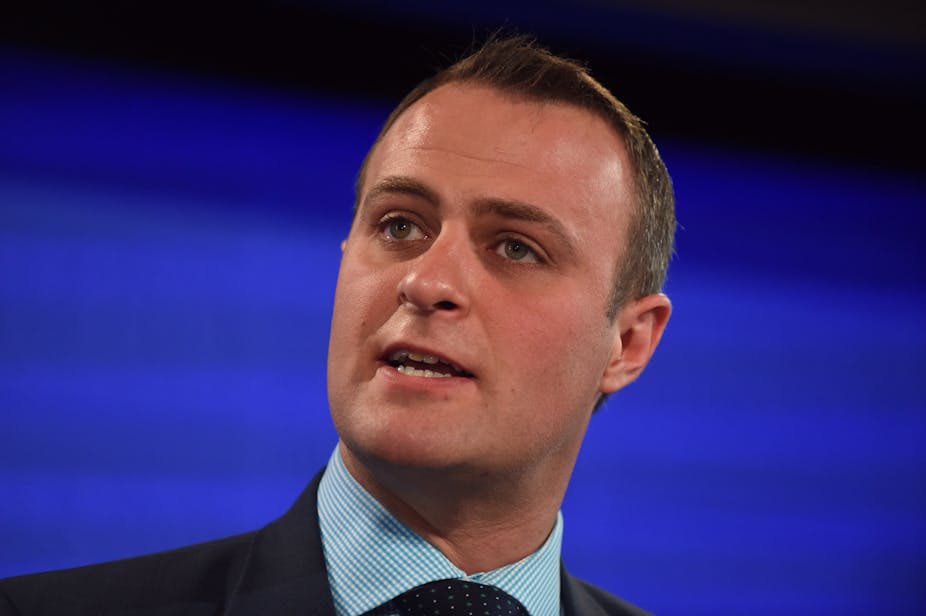It’s awkward for the government – but very good for the public debate – that the Coalition’s citizenship-stripping initiative coincides with the 800th anniversary of the Magna Carta.
Next Monday’s birthday is focusing attention on the broad issue of the protection of citizens and the rule of law. That’s adding fuel to criticisms of the government’s plan, which includes legislating to strip citizenship from dual nationals engaged in terrorist activities, and consideration of extending this to those with sole Australian citizenship if they are eligible to become nationals elsewhere.
Doubts are coming not only from those the government would claim as the “usual suspects” on the political left but from concerned conservatives, including Australian Catholic University’s vice-chancellor, Greg Craven, who argued last week that the initiative as proposed would be knocked out by the High Court.
Now Tim Wilson, the man Attorney-General George Brandis appointed as Human Rights Commissioner, to be particularly the “freedom commissioner”, has weighed in.
In an address to the Sydney Institute’s Tuesday forum on “The legacy of the Magna Carta”, Wilson sympathised with the government’s aim of finding ways to tackle the national security threat posed by foreign fighters.
But Wilson has reservations about the method, saying three questions haven’t been satisfactorily clarified.
These are:
“Why Australian-born citizens, who are dual nationals, should be stripped of their citizenship.
"Why Australian sole citizens could be stripped of their citizenship and how that could be done without rendering a person stateless.
"Why executive government should decide whether a person’s citizenship is removed on the basis of mere suspicion of terrorism, and not the courts.”
Wilson said that “these issues must be addressed before any proposal is passed through the parliament”.
Executive government had a role to make determinations quickly and in the national interest, Wilson said. But “any decision of the government should be temporary to address the immediate threat and must have a higher threshold test than suspicion”.
A person’s citizenship was the basis of all other rights, Wilson said, and any attempt to remove it should be treated with “extreme caution”.
Wilson’s speech comes after Friday’s observations by Human Rights Commission president Gillian Triggs – whom the government is trying, unsuccessfully, to spook out of her position – in an address to a Justice Connect dinner.
Triggs argued that seeking to strip citizenship from people who were “potentially dual nationals” was a clear example of the “overreach of executive power” that is occurring much more broadly.
“This proposal strikes at the heart of Australia as a largely migrant nation. Not only may this idea violate Australia’s international obligation not to render a person stateless, but also the decision may be at the discretion of a minister, without recourse to judicial processes.”
Triggs said the proposal wasn’t new. A bill was introduced last year to give the minister discretion to strip citizenship where there was “fraud or misrepresentation, or where the minister is ‘satisfied’ that a person is not of good character, all without trial or conviction”.
“Magna Carta has something to say about this: it provided that no man is to be ‘outlawed or exiled’ except by the law of the land,” Triggs said.
Last week Communications Minister Malcolm Turnbull also delivered strong words about the importance of the rule of law.
Turnbull has promoted a minimalist course of extending and modernising the present law that automatically removes citizenship from dual citizens fighting in the armed forces of a country at war with Australia.
But the government wants to go beyond this in its legislation to be introduced this month. It proposes to include people in Australia providing help to the foreign fighters. This would raise the prospect of some arbitrary decisions – otherwise why not charge these people under existing laws?
The range of warning voices indicates that aspects of the proposal for dual citizens need re-examination and revision, especially the provision to put decision-making power in the hands of the immigration minister.
The government says there would be protection in that the minister’s decisions would be subject to review. But Immigration Minister Peter Dutton has flagged this would be a review only of the process followed – thus a very limited one – not of the basis on which the decision was made.
All this is apart from the constitutional question mark over the plan.
Labor is in an awkward position, having given approval in principle of the dual citizen measure. One can see Tony Abbott looking to play wedge politics as soon as the opposition raised objections about detail. But the issues are too important for wedges.
Three things need to happen in the short term. The government should think carefully when friends such as Wilson and Craven sound warnings; Liberals like Turnbull who appreciate the rule of law should fight on; and the legislation should be carefully examined by the parliamentary committee on intelligence and security, which has successfully produced bipartisan recommendations for change on earlier occasions.
The fraught issue of ministerial discretion applies to both the proposal for dual citizens and the more radical option for Australian-only citizens, which is out for consultation. The latter option just has further problems as well.
Listen to the latest Politics with Michelle Grattan podcast, with guest, Small Business Minister Bruce Billson, here or on iTunes.

